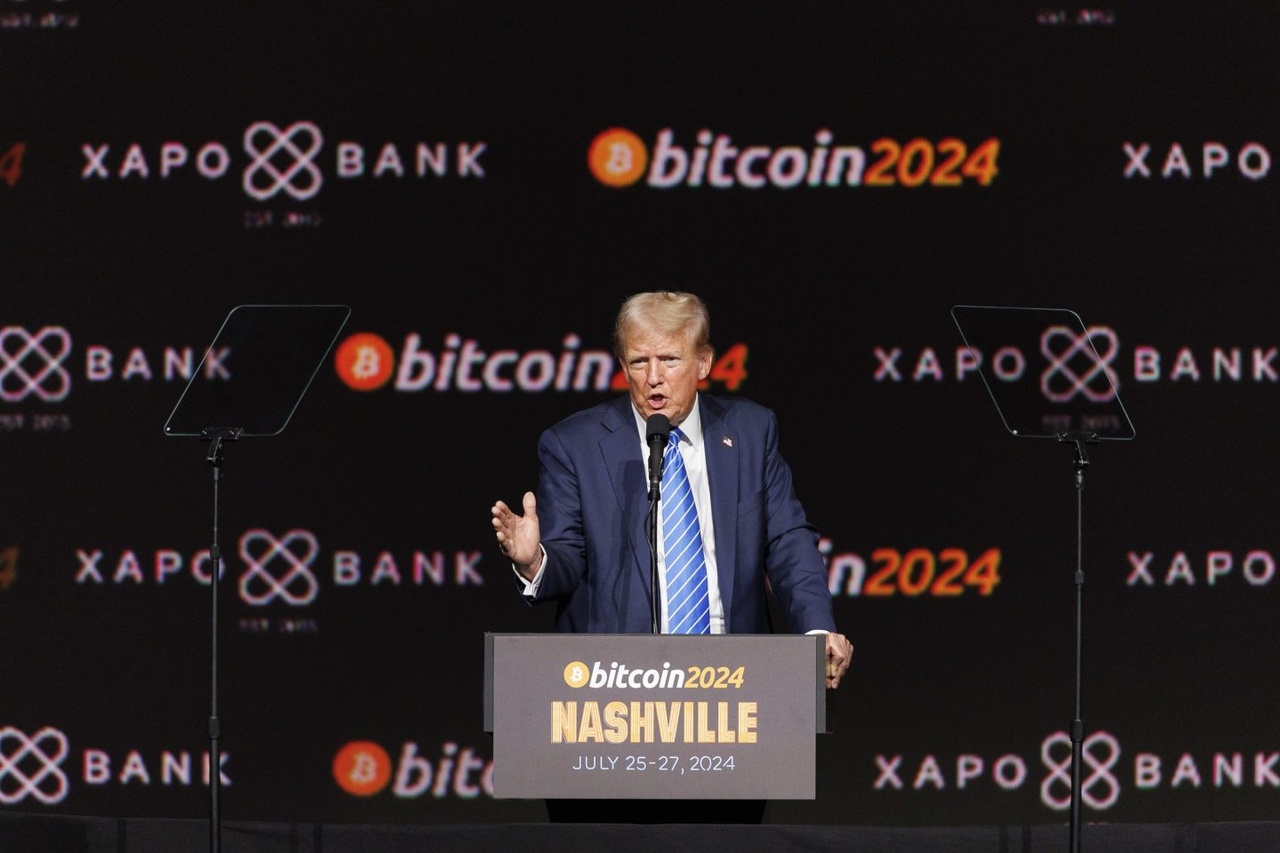

How Trump’s 100% Tariff Could Boost Bitcoin
The geopolitical stage is abuzz with changes as countries rethink their economic strategies. A significant shift in this landscape is the BRICS alliance—Brazil, Russia, India, China, and South Africa—exploring alternatives to the U.S. dollar for international trade. Recently, Donald Trump, in his bold and trademark style, issued a warning: a 100% tariff on any country trying to sidestep the dollar’s dominance. While this stance is aimed at safeguarding the dollar’s supremacy, it might inadvertently create a window of opportunity for Bitcoin.
Let’s dive into the evolving dynamics of BRICS, Trump’s stance, and how this could pave the way for Bitcoin’s rise.
The BRICS Coalition: Aspirations and Challenges
What is BRICS?
Formed by Brazil, Russia, India, China, and South Africa, BRICS started as an economic partnership with one key goal: to reduce dependency on Western financial systems, especially those tied to the U.S. dollar. Over the years, the group has attracted interest from other countries wanting to join their ranks, signaling growing discontent with dollar dominance in global trade.
One of the coalition’s ambitions is de-dollarization. Essentially, they want to shift away from using the dollar in international transactions and potentially create a new currency that represents their collective economic power.
The Roadblocks to De-Dollarization
As ideal as de-dollarization sounds for BRICS, it’s no easy task. History provides a telling example: the European Union spent 34 years building a unified currency, despite being far more integrated economically than BRICS nations. Aligning monetary policies among countries as diverse as Russia and South Africa is a monumental challenge.
Furthermore, the U.S. dollar holds a dominant position, making up around 58% of global foreign exchange reserves. Dismantling such an entrenched system is like trying to move a mountain with a spoon.
Trump’s 100% Tariff Threat: A Game-Changer for BRICS
Trump’s Stance on the Dollar
Trump recently made his position crystal clear on Truth Social:
“We require these nations to commit that they will neither introduce a new BRICS currency nor endorse any other currency to supplant the powerful U.S. dollar; otherwise, they will encounter 100% tariffs.”
This isn’t just rhetoric; it’s a clear warning that any move away from the dollar will come at a hefty price.
The Economic Fallout for BRICS Nations
If Trump’s proposed tariffs come into play, they could hit BRICS nations where it hurts. China and Russia, two of the most vocal proponents of de-dollarization, are major exporters to the U.S. Losing access to American markets could cripple certain industries and make abandoning the dollar a risky gamble.
China, for instance, depends heavily on its trade relationship with the U.S., and while it has been exploring alternative systems like its Cross-border Interbank Payment System (CIPS), these don’t yet match the reach of dollar-based systems.
How BRICS Could Respond
Faced with such economic threats, BRICS nations might double down on creating alternatives. Russia has already started developing payment systems that bypass Western networks like SWIFT, while China has encouraged local currency trade agreements.
But here’s the catch: even if these systems succeed, they might not fully shield BRICS from the fallout of U.S. tariffs. This uncertainty is where Bitcoin enters the conversation.
Bitcoin: The Dark Horse in Global Finance
Why Bitcoin Matters
Bitcoin operates outside of traditional banking systems and isn’t controlled by any government. This decentralized nature makes it immune to tariffs or sanctions. For individuals and nations alike, Bitcoin represents a way to escape the constraints of traditional financial systems.
A Refuge Amid Tensions
As tensions between the U.S. and BRICS nations heat up, Bitcoin could become an attractive option for those wanting to avoid political and economic entanglements. For example, businesses in sanctioned countries could use Bitcoin to conduct international transactions without worrying about blocked payments or currency devaluation.
Bitcoin’s Track Record in Uncertain Times
Historically, Bitcoin has thrived during periods of financial uncertainty. When traditional currencies falter due to inflation or political instability, Bitcoin often sees a surge in adoption.
If Trump’s tariff threats destabilize global trade or spark sanctions, Bitcoin could become a lifeline for businesses and individuals in BRICS nations. The cryptocurrency might gain traction as a store of value, especially if faith in government-backed currencies wavers.
The Ripple Effects of a Bitcoin Boom
For Individuals
Imagine living in a country facing tariffs, sanctions, or a weakening local currency. Bitcoin offers a way to preserve wealth and participate in global trade without the red tape.
For Businesses
Companies could use Bitcoin to bypass traditional banking systems and tariffs, especially when dealing with international clients. This agility might make Bitcoin the preferred currency for cross-border transactions in politically unstable regions.
For the Crypto Market
Increased adoption of Bitcoin in BRICS nations could spur broader acceptance of cryptocurrencies globally. As more people and institutions recognize the value of decentralized finance, Bitcoin’s price and utility could soar.
Could Bitcoin Replace the Dollar?
While Bitcoin’s decentralized nature makes it a strong contender in certain scenarios, it’s unlikely to replace the dollar anytime soon. The U.S. dollar’s position as the world’s reserve currency is deeply entrenched, supported by robust financial infrastructure and trust built over decades.
However, Bitcoin doesn’t need to dethrone the dollar to succeed. It can carve out its niche as a parallel system for those seeking alternatives.
The Bigger Picture: A Changing Financial Landscape
Trump’s tariff threats against BRICS nations are just one piece of a larger puzzle. The global financial system is evolving, and players like Bitcoin are becoming increasingly relevant. As nations grapple with power dynamics and individuals seek more control over their finances, the concept of money itself is being redefined.
In this era of change, Bitcoin is more than a cryptocurrency—it’s a symbol of financial independence and resilience. Whether you’re a skeptic or a believer, one thing is clear: Bitcoin is here to stay.
Final Thoughts
Trump’s aggressive stance on tariffs may solidify the dollar’s dominance in the short term, but it also opens doors for alternatives like Bitcoin. As geopolitical tensions rise, Bitcoin stands to gain from the cracks in traditional systems.
So, whether you’re following the rise of BRICS, Trump’s policies, or the Bitcoin boom, one question remains: Are we witnessing the dawn of a new financial era?
What do you think? Is Bitcoin the future, or is it just another bubble waiting to burst?






